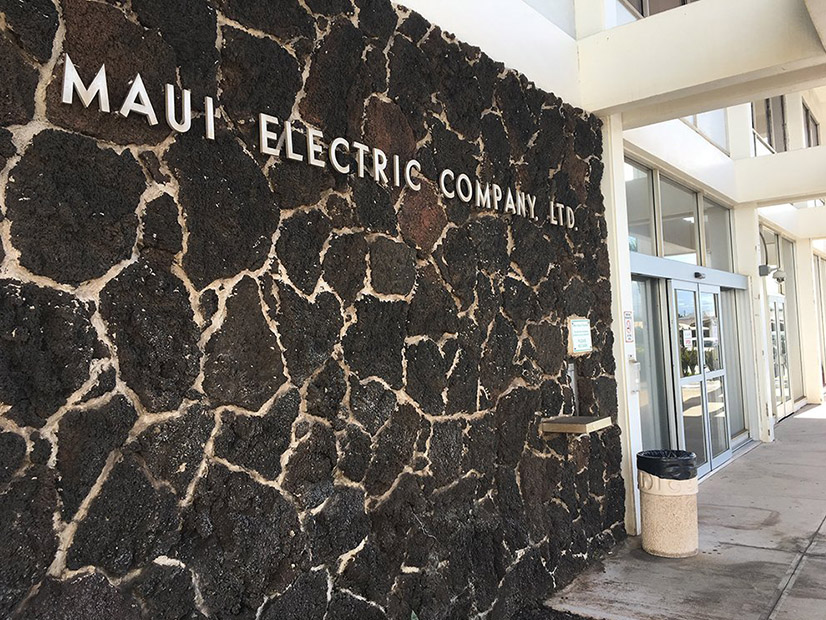
The Hawaii Public Utilities Commission last week instructed Maui Electric Company (MECO) and other parties to explore mediation over the disputed Kahana Solar Project proposed for West Maui.
The other parties include Kahana Solar, the West Maui Preservation Association (WMPA) and the Hawaii Division of Consumer Advocacy (CA).
MECO and Kahana Solar, a subsidiary of the Canada-based Innergex, have been working together to develop the 20 MW solar project coupled with a four-hour, 60-MWh battery energy storage system. The WMPA has contested the project, raising community-interest concerns.
The dispute escalated through exchanges in PUC dockets among the four organizations, prompting the PUC to hold two evidentiary hearings that ended with the parties agreeing only to discuss the possibility of mediation outside the hearings.
The dispute stems from WMPA’s concerns about project’s future impacts on West Maui and a perceived lack of input from the community.
“From the beginning, MECO has treated this project as a foregone conclusion without attending to the community members’ critical questions,” Ryan Hurley, an attorney representing the WMPA, said Friday. “These include whether or how the agricultural lands will be restored to service to West Maui communities at the end of the project’s life; why more native plants cannot be used as ground cover; and why it is so unthinkable that an independent entity composed of West Maui community members would be more effective at managing community benefits than a Canadian-based developer who plans on contracting out both the construction and operations of its project.”
Brian Hiyane, managing counsel at MECO parent company Hawaiian Electric, disagreed, saying the utility had met the burden of proof that its power purchase agreement with Kahana solar is prudent and in the public interest.
“As shown, the proposed Kahana Solar Project will result in a substantial reduction in fossil fuel consumption and greenhouse gas emissions,” Hiyane said. “The project will also reduce the need for fuel imports, reduce fuel supply reliability risks, increase the state’s energy independence, provide substantial assistance to Maui Electric in meeting the state’s renewable portfolio standard, and provide customers with greater system reliability and flexibility.”
Julia Verbrugge, attorney for the CA, said, “We are not convinced that the burden has been sustained at this point … This must be done in a formal manner, and not at the expense of those communities.”
Verbrugge wondered why Kahana Solar opposed including a third-party administrator during last week’s hearings after the WMPA noted that using such a mediator would “go a long way” toward getting the group to agree to the project.
“Sometimes it helps to have a neutral third party, such as a mediator, involved to help as part of a collaborative process,” she said.
Verbrugge also lamented that “we haven’t even gotten to the second bifurcated part of this docket: the interconnection phase.”
Douglas Codiga, attorney for Kahana Solar, argued that the project’s value is indeed a foregone conclusion, saying, “The project stands ready to deliver a multitude of critically important benefits, [both] economic and environmental.” He said the project would power approximately 11,600 homes, lower electricity bills, protect against oil price volatility, and reduce GHGs.
“The record firmly establishes that the application and PPA should be approved at this time … The record overwhelmingly supports the approval of the application,” Codiga said.
Pointing to the openness to dialogue during last week’s hearings, PUC Chair James Griffin ordered the parties to consider mediation amongst themselves.
The PUC instructed the parties to report back on Sept. 23 on any progress on that request. If the parties do enter mediation, they will have until Oct. 15 to conclude deliberations. The commission noted that it will “not be involved in any mediation efforts” and that the parties must deliberate on their own.


